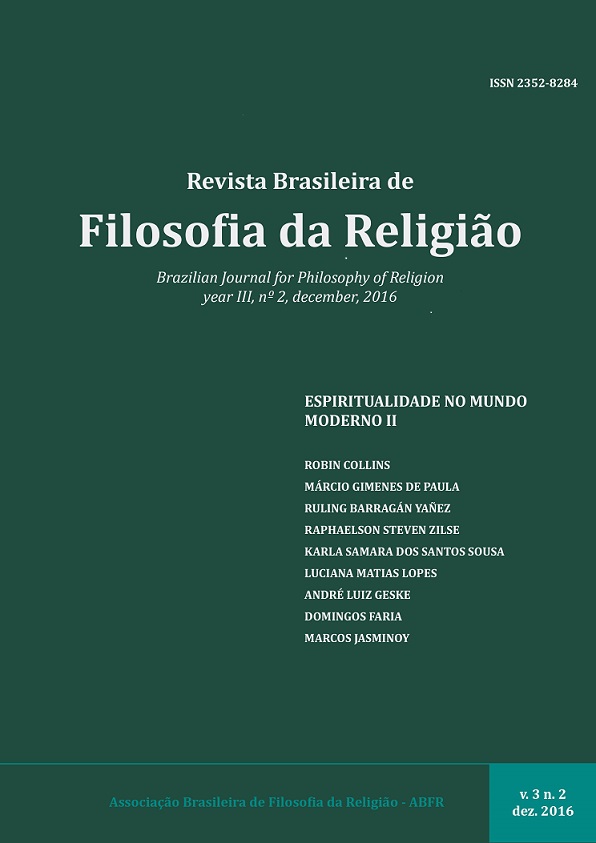METHODOLOGICAL THEISM
DOI:
https://doi.org/10.26512/2358-82842016e17361Palabras clave:
methodological naturalism, Intelligent Design Movement, axiarchism, religion and scienceResumen
As I define it, methodological theism is the position that,
for the purposes of doing science (or empirical inquiry
more generally), we should treat the world as if it were
designed by God. Since methodological theism does not
claim that God is a scientific hypothesis, it is compatible
with methodological naturalism, which says that one
should only invoke natural entities in a scientific
hypothesis. This constitutes a major difference between
methodological theism and the so-called Intelligent Design
Movement, which rejects methodological naturalism. I not
only argue that theistic scientists should adopt
methodological theism, but that it accounts better for the
actual practice and success of science than its major
alternatives. I do this by looking closely at the criteria of
theory choice in science. I then discuss the important
potential ramifications this view might have on scientific
practice and our view of the physical world.
Descargas
Citas
CHARDIN, Teilhard, The Phenomenon of Man, Harper and Row, New York, New York, 1955.
DIRAC, P.A.M. "The evolution of the physicist's picture of nature." Scientific American, May, 1963.
HOFFMAN, Banish. Albert Einstein: Creator and Rebel, New York, New York, New American Library, pp. 17 ”“ 18, 1973.
HOGARTH, William. The Analysis of Beauty. London, UK: J. Reeves, 1753.
KLINE, Morris. Mathematical Thought, From Ancient to Modern Times, Vol. 1. Oxford, UK: Oxford University Press, 1972, p. 153.
MAUDLIN, Timothy. “Part and Whole in Quantum Mechanics”, in Elena Castellani, editor. Interpreting Bodies: Classical and Quantum Objections in Modern Physics. Princeton, NJ: Princeton University Press, 1998, 46-60.
McDERMONT, John (ed). “The Sentiment of Rationality”, in The Writings of William James. Chicago: The University of Chicago Press, 1977.
MORRIS, Simon. Life's Solution: Inevitable Humans in a Lonely Universe. Cambridge, UK: Cambridge University Press, 2003.
PAPI, F. and LUSCHI, P. “Pinpointing ‘Isla Meta’: The Case of Sea Turtles and Albatrosses,” The Journal of Experimental Biology, 199, pp. 65-71, 1996. Available on the internet at http://jeb.biologists.org/cgi/reprint/199/1/65, accessed March 15, 2009.
PENROSE, Roger. The Emperor's New Mind: Concerning Computers, Minds, and the Laws of Physics, New York: Oxford University Press, 1989.
SHELDRAKE, Rupert. The Presence of the Past: Morphic Resonance and the Habits of Nature. New York, NY: Vintage Books. 1988.
STEINER, Mark. The applicability of mathematics as a philosophical problem. Cambridge, MA, Harvard University Press, 1998.
TSIKOLIA, Nikoloz. “The role and limits of a gradient based explanation of morphogenesis: a theoretical consideration.” International Journal of Dev. Biology. 50: 333-340, 2006.
WALCOTT, Charles. 1996. “Pigeon Homing: Observations, Experiments and Confusions,” Journal of Experimental Biology, 199, 21-27, 1996. Available on the internet at http://jeb.biologists.org/cgi/reprint/199/1/21, accessed March 15, 2009.
WEINBERG, Steven. Dreams of a Final Theory. New York: Vintage Books, 1994.

